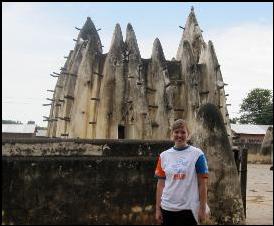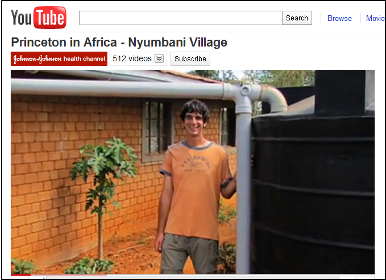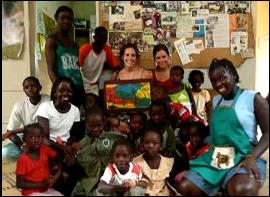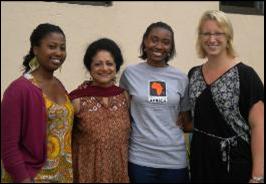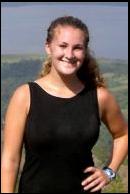

|
Fellows’ Flyer |
|
July/August 2011 |
|
News and views for and by Princeton in Africa Fellows |



|
There are many things that I've found surprising about working at an orphanage in Kenya for a year. Some of them have been good surprises and some not so good. But the thing that has surprised me the most, the thing that has consistently blown me away time and again, is the children here. The kids in this village have all suffered through things I could never imagine – neglect, hunger, sometimes abuse, the loss of both parents before finishing grade school. And yet, if I had to pick one word to describe the kids here it would not be bitter, or maladjusted, or anything like that. Rather, I would choose motivated. Especially when it comes to education. It’s amazing to walk at night through this very rural village in Kenya and know that any house I walk into will hold several students studying harder than I, with all the gifts of education that I've been given, almost ever did. Let me hit you with an example. Elizabeth Muliwa is a 16-year old girl who lives not far from me in the Village. She's about half way through her second year of high school, and has been living in the Village since 2009.
A few months ago, we got a shipment of solar lights from Japan to hang in the houses so the children would have light at night so they could study. Previously, kerosene lanterns had been used. Elizabeth's house was one of the first houses that got one of these lights, and a few nights after it was installed I walked over to see how it was working. At around 8:30 p.m., the house was pitch dark. I wandered out back to find Elizabeth sitting by the fire eating dinner with some of the other kids in the house, and asked her why she wasn't using the new light everyone else seemed so excited about. She replied that she was saving the light, and explained that now she uses it when she wakes up at 3 am to do her homework. 3 am, before a school day that runs from 6am to 7pm.
Elizabeth is, I suspect, one of the harder workers in the Village (she's currently trying to get revision books so she can study for the end of high school exam she'll be taking in over two years time). But this level of work ethic is not atypical, and the only goal for the overwhelming majority of the kids here is the chance to go to university. The focus that these kids have on their education is truly extraordinary and inspiring. It definitely makes me see the opportunities I've been given in a new light, but mostly it makes me feel very lucky that I've been given the opportunity to work with kids like this. |
|
Notes from the Field |
|
Elizabeth (seated) concentrating on her studies |

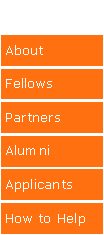

|
Notes from the Field |
|
Some of the older kids dancing and learning about HIV and sexual health at the Leribe testing event |
|
Chris with a Baylor doctor, nutritionist and nurse in front of their newly built keyhole garden at the Leribe satellite clinic |
|
Chris and some of the Nyumbani Village kids |
|
by Christina Jung, ‘10-’11 Fellow at Baylor Bristol Myers-Squibb Children’s Center, Lesotho |
|
Tel: 609.258.7215 Fax: 609.964.1818 piaf@princeton.edu |
|
Mailing address: Post Office Box 226, Princeton, NJ 08542 Street address: 194 Nassau Street, Suite 219, Princeton, NJ 08542 |
|
As I write this now, I have only one week left in my fellowship with the Baylor Pediatric HIV/AIDS Clinic in Maseru, Lesotho and I'm astounded by how quickly the past year has passed. While working as the community outreach coordinator in various districts with our satellite clinics to strengthen access to HIV testing and counseling, promote health awareness and expand adolescent services, I have come to appreciate both the difficulties and the joys from working in community health development. It has been an honor to have had the incredible opportunity to lead community testing events like Child Health Days and community initiatives like the keyhole garden project and to work with all the amazing staff members at Baylor-Lesotho. I've tried several times to sum up the variety of experiences I've had, but they have been so different that it is difficult to find one way to describe them. What I have come up with is a patchwork kind of countdown: 8 things I never thought I'd do: —Eat fried worms and enjoy it —Jump over the gorges at Vic Falls —Pet a cheetah's belly —Organize a successful Child Health Day that ended relatively on time! —Ride an elephant and hug a baby elephant —Build not one but three keyhole gardens with some of our caregivers —Build a snowman in Africa —Fly over Lesotho in the front seat of a helicopter 7 ways I've become more Basotho: —When it's raining, I think of how much the spinach and carrots will grow in our garden —When it's sunny, I think of all the laundry I could hang out to dry —I like motoho and lesheleshele for breakfast sometimes —li's and lu's sound like di's and du's in my head —Sometimes I walk with a Basotho blanket wrapped around my waist —Instead of yes, I say “sharp sharp” —I put more salt on my food now than ever before! 6 common sights in Lesotho: —People chatting from one mountaintop to another —Cows leisurely walking past your window as you have a meeting —Traffic jams from people chatting to friends in different cars --People walking in Maseru with ski masks because of the cold —Metal scraps from old vehicles used as fences —Clothing hanging from tree branches 5 lessons I've learned: —Say Baylor like “BAY-luh”... otherwise no one will understand you! —Prepare for meetings to start (much) later than planned —Have people initiate project ideas rather than instructing them on tasks —Having people initiate and carry out project ideas is one of the hardest things to do —Hold yourself responsible for things you can control, and hope for the best for those you can't 4 of my favorite moments: —Having the banana vendor know how many bananas I want (I buy so many from him!) —Standing on a mountaintop and seeing hundreds of people being tested for HIV at an event I put together —Being hugged by one of the mothers during Caregiver Day —Doing origami with the kids at Queen II, the Maseru district hospital 3 things I'll miss about Lesotho: —Bobbing to the South African house music blasting in public transport kombi mini-vans —Seeing the staff and children sing during morning prayer at the clinic —Having a direct, tangible impact on our kids and their caregivers 2 things I'll never forget: —Losing a child at the hospital —and conversely, seeing a malnourished child gain weight over just a few weeks and 1 thing I look forward to: —Coming back to Africa and working in healthcare development!
|
|
2011PiAf Reunions Events |
|
After nearly one year in Liberia, I was beginning to feel a level of comfort that I never expected to find in a war-torn nation, still very much in the beginning stages of rebuilding. I can understand my coworkers when they communicate with each other in Liberian English (not just an accent here, but an entirely different dialect complete with alternative radio broadcasts and translation guides), I’m no longer phased by constant generator breakdowns, and being based in remote, rural Lofa County, I know which local foods are most impressive to eat in front of my Liberian friends. However, after nearly two months away from my home base in Voinjama, Lofa County, I’ve returned with a completely new assignment that has shown me how much I still have to learn. Just this month, I’ve begun an agriculture assessment that will help the International Rescue Committee understand how agriculture and livelihoods work might complement its ongoing work in Lofa. As the lifeline of the county and the only industry around, agriculture in Lofa has serious potential. However, it is nowhere near where it could be in this luckily fertile region that used to be said to provide food for the entire Liberian population. The multi-ethnic county bases its entire existence on rice farming and the harvest, though I’ve been entirely removed from this aspect of the local life, aside from a few days at friends’ farms, ‘helping’ with the planting (but really providing a source of entertainment). I didn’t realize how much, though. After just a few focus groups, I’ve learned how involved women are in farming, often providing for their families on their own without any male presence in the households. I’ve learned that right now, as I become excited about the resurgence of cucumbers, tomatoes, fruit, and corn in my diet, Lofians are facing the hungry season. The farmers in the region have relatively advanced set-ups and their requests show how with just a little help (of the right sort) agriculture could be booming once again. After meetings with a few key stakeholders in agriculture, not only am I learning how to conduct an assessment, but I’m also meeting with some of the most important leaders in the Lofa County economy. These focus groups also reiterate how the Liberian civil war affected every level of the country, destroying infrastructure, knowledge, and local institutions such as farming cooperatives. Almost every conversation I have here references ‘before’ or ‘after the war,’ a valid metric when one considers how significant the 14-year interruption was on Liberians’ lives. As farmers discuss land disputes and the deterioration of farming initiatives that were very forward-thinking thirty years ago, I’m yet again struck by how much has been lost in Liberia. Thus I am confirming my feelings about working in post-conflict Liberia even as I am charged with new responsibilities at work. Although Liberia is a challenging place to work and may not offer the same carefree spirit as other posts, it is all the more rewarding because of the essence of the work that I’ve been able to do alongside Liberians, working to rebuild their country. |

|
Becca working on the agricultural assessment in Lofa County |
|
“Maakye.” The first words I hear when I walk into my office in the morning. “Y’enya,” I reply. I sit down at my desk, having just greeted my office mate with “and a good morning to you, my sister,” turn on my computer, and brace myself for what is sometimes an 11 hour day at the UN World Food Programme country office in Accra, Ghana. We’re a relatively small staff, which means that we’re all subjected to the “jack-of-all-trades” mindset. I could be given 10 minutes notice to attend a meeting with the World Bank or be left to continue with my main responsibility as acting liaison between the Country Office and the Sub-Office in the North for our Food for Work and Food for Training programs. There are so many aspects of this job that I could rave on about: the challenges (and rewards) associated with the “sink or swim” mentality my office operates by, the incredibly talented and inspiring people that I’ve been allowed to work alongside, the tens of thousands of Ghanaians that we have fed… But I won’t. Instead, whenever I think of my job and my experience here in Ghana, there is one person that seems to sum it all up: the woman who greets me with “Maakye” – Good Morning- every morning, my office mate, Mercy Acheampong (pronounced “a-SCHOM-pong” – believe me, it’s important to get it right. She yells at me every time I don’t.) Mercy started one week before me and is only two months older than me. She is my walking Ghanaian encyclopedia (Mercy, how much should I pay for a taxi from here to here? What does this word mean in Twi? Where do I find _____? Why do the Ghanaians insist on putting palm oil in EVERYTHING??) And, bless her heart; she always humors me with answers. Although, to be fair, it is a two-way street (Elly, why do “you people” -politically correct rhetoric went out the window a LONG time ago - like spending so much time in the sun? How do you not die when it snows? Why do some people keep goats as [gasp] pets!?) Unfortunately, I’m usually of less help. (Good grief, Mercy. Who knows why there is a photo on the Internet of Tori Spelling walking her goat around Beverly Hills on a leash….) We laugh over the same jokes, we both love watching Modern Family together; we’ve even started sharing clothes. Mercy is more than a work colleague; she’s my gateway to Ghanaian culture. And some days, when work seems to be on the brink of an unbearable challenge, she is my sanity. She has become a near and dear friend, one that I cannot wait have visit me back in Iowa so that I may show her my world- and repay her for everything she has opened my eyes to. I have had an incredible year as a PiAF 2010-2011 Fellow in Accra, Ghana. Work has challenged and pushed me to new levels I never knew I was capable of, the landscape has shown me breath-taking beauty, and I have made life-long friends that I hold near and dear to my heart. But of all the things I have learned over this past year, there is one thing I know for sure. Mercy Fremah Acheampong is, and always will be, my Ghana. |

|
by Elly Sukup ‘10-’11 Fellow at World Food Program, Ghana |
|
Notes From The Field |
|
Highlights from 2010-2011 Fellows: Becca Balis in Liberia, Chris Courtin in Kenya, Christina Jung in Lesotho and Elly Sukup in Ghana. |
|
by Becca Balis, ‘10-’11 Fellow at International Rescue Committee, Liberia |
|
Notes from the Field |
|
Princeton in Africa held three well-attended events coinciding with Princeton Reunions weekend.
On Friday, May 27 PiAf board members had the chance to welcome the new 2011-12 PiAf Fellows and their families. The turnout was terrific and the ever-expanding PiAf family bonded over wine and cheese (photo above right).
On Saturday, May 28 PiAf held a gathering for alumni and friends right on the P-rade route in Butler College. The freezing cold air conditioning was a big crowd pleaser but we know everyone would have come to share in the PiAf love with or without A/C! There was a great showing among the Class of ‘06 who kept the party lively (photo below right).
On Monday, May 30 a parents’ reception was held in the PiAf offices. We loved meeting our ‘11-‘12 Fellows’ parents and enjoyed seeing not only the Fellows connect with one another, but their parents too! What a great way to kick off yet another exciting fellowship year! Click here to see more photos of PiAf’s Reunions Events on our Facebook page. |
|
Helaina Stein, 2010-2011 Fellow at Generation Rwanda recently had her blog post featured on Africa.com. Click here to read her blog post and to learn about her work with Rwandan students. |
|
News from the PiAf Office: —Helaina Stein’s Blog Featured on Africa.com |
|
Becca and participants in the agricultural assessment she performed for IRC Liberia. She found that many women in Lofa county farm to provide for their families and have no male presence in their households. |

|
Blog Of The Month |
|
by Chris Courtin, ‘10-’11 Johnson & Johnson Fellow at Nyumbani Village, Kenya |
|
Elly in front of a community mosque in Northern Ghana |
|
Elly, and her office mate, Mercy, after attending a UN workshop in Ghana's Volta Region |

|
PiAf Fellow Featured in Johnson & Johnson Video |
|
Chris Courtin, ‘10-‘11 Johnson & Johnson PiAf Fellow at Nyumbani Village in Kenya, was featured in a video created by Johnson & Johnson to showcase Nyumbani Village and the Princeton in Africa fellowship program. In the video, Chris describes the projects he’s been working on at Nyumbani, including a water harvesting system for the village of 736 children and 72 grandparents who lost loved ones in the HIV epidemic. Nyumbani provides housing, education and other services to the residents of the village and is striving to make these projects as sustainable as possible. PiAf is extremely grateful to Johnson & Johnson for sponsoring the PiAf fellowships at Nyumbani Village and Project Mercy in Ethiopia. Watch the video here. |

|
Fellow’s Blog on Africa.com |

|
‘11-‘12 PiAf Fellows Alicia LeClair (mothers2mothers, South Africa) and Emily Kossow (Baylor Bristol Myers-Squibb Children’s Center, Botswana) visit the PiAf office before heading to Africa. |
|
PiAf Connections: PiAf Fellows, Alums and Board Members meet up around Africa |
|
‘10-‘11 PiAf Fellow Jamie Nadaeu welcomes ‘11-‘12 Fellow Mark Adams to Kucetekela Foundation in Lusaka, Zambia (Jamie and Mark are joined by some of their KF students). |
|
PiAf’s Plan Uganda Fellows Tiffany King (‘10-‘11), Leah Haynesworth (‘11-‘12) and Emily Trautner (‘11-‘12) with their supervisor, Subhadra Belbase in Kampala. |
|
Sundowners at Mpala: PiAf Fellows Laura Budd (Mpala, ‘11-‘12, left), and Theresa Laverty (Mpala, ‘10-‘11, center) with PiAf alum Keir Soderberg (Quantitative Literacy Project, '01-'02, South Africa) and PiAf board members Dan Rubenstein and Diana Davies. |
|
‘10-‘11 PiAf Fellow Allie Bream (WFP, Ethiopia) enjoyed dinner with ‘11-‘12 Fellows Anne Stotler (Save the Children, Ethiopia) and Rachel Quint (IRC, Ethiopia) in Addis Ababa. |
|
WFP Senegal PiAf Fellows Isabel Pike (‘11-‘12) and Molly Slotznick (‘10-‘11) at Ak Benn, a children's community center in Dakar. |
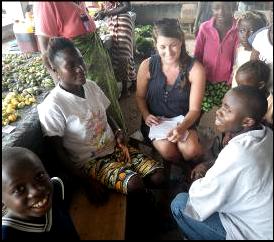
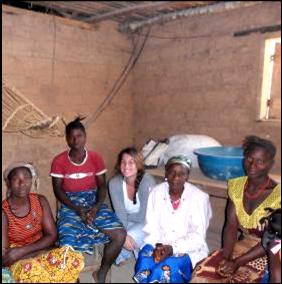
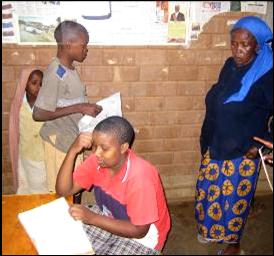
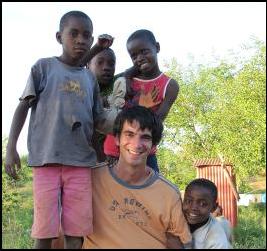




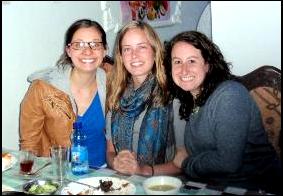
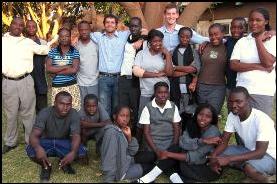
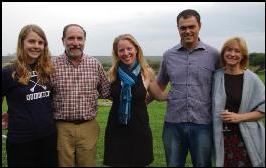
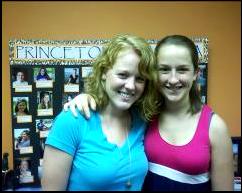
|
Many of our Fellows have posted blogs about their experiences in Africa. If you would like to read more of our Fellows’ blog posts, please visit the ‘10-‘11Fellows’ page or ‘11-‘12 Fellows’ page. |
|
Name of blog: Life in Lusaka, Zambia Written by: Jamie Nadeau, 2010-2011 Fellow at Kucetekela Foundation
From a recent post: “…It is fundamentally impossible to convey how much this experience has changed my life. When I look back at myself a year ago, I remember a different person: uncertain, naive, and in many ways lost. Yet, somehow, over several months, I fell in love with this beautiful country, the friends that became my family that grew alongside me, the frustrating yet invigorating flexibility and independence awarded to me in my position, the students who have left a permanent mark on my heart. And throughout it all, I found myself solidifying the things that I knew I had always cared about but was afraid to admit to. I found a strange, unshakable confidence--in my ability to adapt, to connect to people, to make things happen when they once seemed impossible…”
Read more of Jamie’s blog here! |
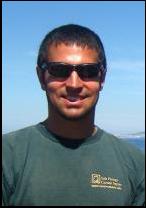
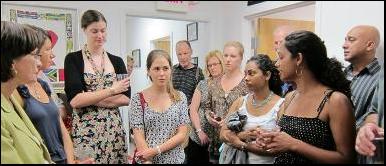
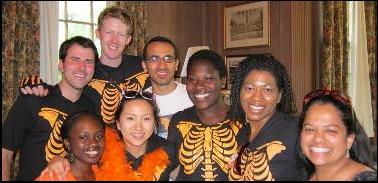
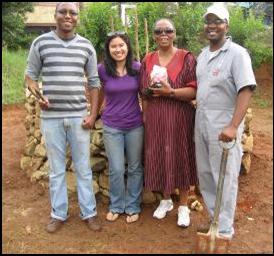
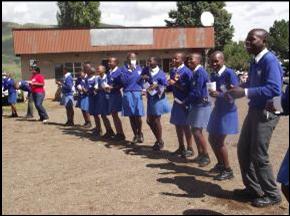
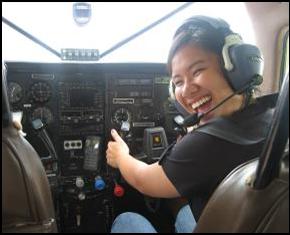
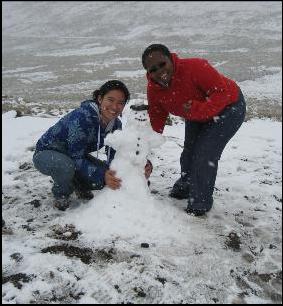
|
Building a snowman in Makhotlong with one of the Baylor outreach nurses (it gets cold enough to ski in Lesotho!) |
|
Chris co-piloting the helicopter over Lesotho (she didn’t really fly it—she’s just pretending!) |
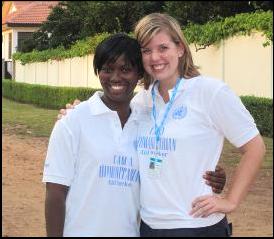
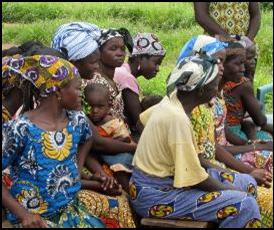
|
Beneficiaries of the Food for Work program that Elly helps manage |
